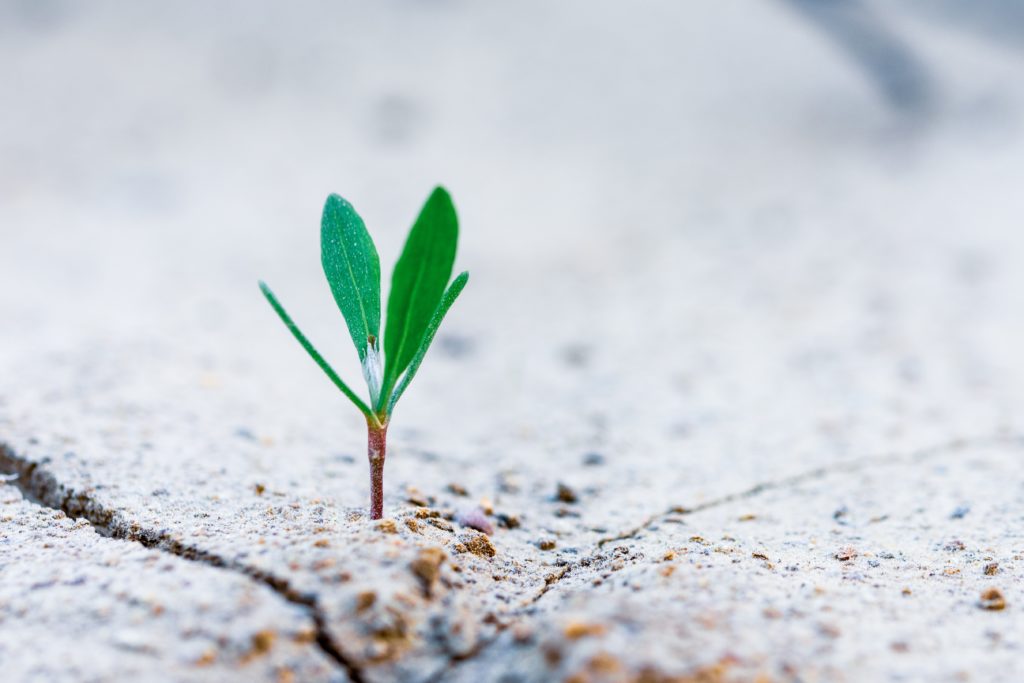Recently I had the opportunity to interview Nathanael Garrett Novosel about his new book, The Meaning of Life: A Guide to Finding your Life’s Purpose. As he lays out his process for how we each can discover our unique path, Nate begins by explaining that to be alive is to grow.
“In short, growth is why life exists,” he writes. “Growth is the foundation of all living things, and it is the most important concept to internalize as you aim to find your own life’s direction and purpose.”
It is in our design to grow and to keep growing until we die. Think of a plant that has outgrown its pot; if you don’t transfer it to something bigger and give it room to expand, it will start to die. Think of a fish that’s kept in a small bowl. Move it to a larger one and that fish will almost immediately get bigger. Life grows. Period.
You grow all the time without intending to or realizing that you are. Your hair, nails, eyebrows and, apparently, your ears and nose, never stop growing. More importantly, your brain is constantly learning, adapting and creating new neuron connections and synapses.
While most of our growth happens outside of our will or awareness, we humans have the unique capacity to deliberately participate in and direct our growth. Like no other species on the planet, we can grow on purpose. When you think about it, that’s an incredibly thrilling prospect.
So, how do we grow on purpose? Here are 8 suggestions:
1. Read instead of watching television
Some of the world’s most intriguing people and successful entrepreneurs adhere to the book-a-week rule. While that might seem out of reach, the truth is that the average book takes about 8 hours to finish. According to the A.C. Nielsen Co., the average American watches more than 28 hours of TV a week. In about an hour a day, a person can easily finish a 300-page in a week while still leaving about three hours leftover each day to watch television. Need some suggestions? Check out my book nut page, which lists dozens of my favorite books.

2. Go out of your way to have new experiences
Our mind is wired to look for novelty, and it loves it! I feel most alive when I’m trying and learning new things, traveling to new places and having new experiences. Make it a point to feed your brain novelty by planning a novel experience every week. Examples include cooking a recipe you’ve never tried before, visiting a new hiking trail, or going through photos of a place you’ve never visited.
3. Commit to learning new things
From free TEDTalks, LinkedIn Learning courses and YouTube videos to paid platforms and services such as The Great Courses, Lessonface, Udemy and Coursera, the internet is a treasure trove of learning. Consider also joining a book club, taking a class at your local community college or looking through Meetup.com to discover interesting workshops and seminars offered nearby.
4. Find people to connect with outside of your bubble
It’s easy to live in an echo chamber when we constantly surround ourselves with people who share our experiences and beliefs. If you’re constantly having your own perspective reflected back to you, you never get the chance to expand your world view. Think about someone you know who shares a different religious belief or political ideology than you and make a point to have a conversation aimed at learning more about them and what they believe (instead of aimed at convincing them of what you believe). Go on belief-finding missions for the sole purpose of expanding your beliefs and seeing the world from someone else’s perspective.
5. Set aside time to reflect on past experiences and beliefs
What are the beliefs you held or truths you thought were unshakable ten years ago that you now see differently? Thanks to experiences and the wisdom that simply comes as we age, I can see that there are many things I understand or see differently. Ten years ago I may have looked at a mother snapping at her child and judged her harshly. Now I can assume that she’s probably just having a bad day or feeling the cumulative fatigue that comes with parenting sometimes. I’m more compassionate but also more open to the idea that I’m not always right and there’s always more to discover about someone’s perspective. That’s growth. When you look back, 10, 20 years, you’re certain to see a lot of growth in yourself.

6. Journal
Setting aside time each day to work through our inner world on paper gives us the opportunity to create clarity out of our muddled and jumbled thoughts. Inquiring about why I may feel a certain way or be stressed about certain things gives me an opening to know and understand myself better. Recently I was feeling especially chaotic but as I started to list all of the things in my life that were making me feel frenzied, I realized that the only thing wrong was that I was overcommitted, my plate was too full. Since I love helping and starting new projects, I am prone to say yes to too many things, which inevitably sends me into overwhelm. I grow when I notice this tendency and choose to behave differently and make different choices.

7. Hire a coach or therapist
Sometimes my journal just doesn’t cut it and I need a professional to help me sort through some tough experiences. Speaking with a coach or therapist not only allows me to clarify and really get underneath an experience I am having, but I’m also shown things I couldn’t see, beliefs and truths that lived in my blind spots. Discovering the thoughts that fuel my decisions and beliefs, but that may not be serving me, help me to explore new possibilities I may not have seen before. As my possibilities expand, so do new opportunities for growth and development.
8. Meditate
A key benefit of meditation is that as we increase our capacity to sit with and witness the inner workings of our mind, we begin to increase the space between our reaction to outside stimulus and our response to it. In that space, we realize our capacity to decide how to respond instead of constantly having knee-jerk, automated and sometimes harmful reactions. In that little micro-second of choice, we grow and get better at being the person we want to be.
Going back to Nate’s book, we are succeeding in life when we are growing. “Many people restrict the definition of success to the attainment of an outcome,” Nate writes. “They forget that most people describe someone as successful when they are in the process of building a great life for themselves.” So, embrace the work in progress that you are and revel in your capacity to grow. Always be in process.
________________________________________________________________
ABOUT KRISTEN
Kristen Manieri is a Certified Mindfulness and Resilience Teacher specializing in: stress reduction, energy management, mindset, resilience, meditation, habit formation, rest rituals, and self-care. As the host of the weekly 60 Mindful Minutes podcast, an Apple top 100 social science podcast, Kristen has interviewed over 100 authors and thought leaders about what it means to live a more conscious, connected, intentional and joyful life. Learn more at kristenmanieri.com/work-with-me.
